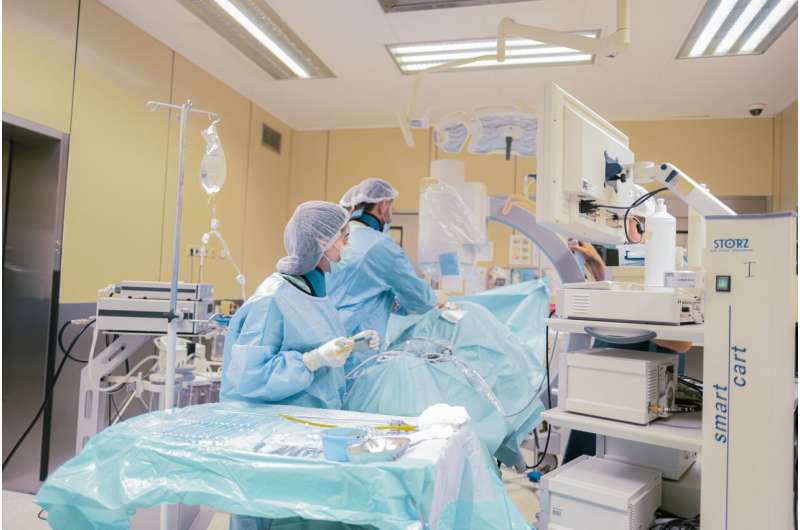
Researchers led by Karolinska Institutet, Stockholm, Sweden, have conducted a long-term study regarding the use of mesh reinforcement in hiatal hernia repair for patients with gastroesophageal reflux disease (GERD).
In a paper titled “Hiatal Hernia Repair With Tension-Free Mesh or Crural Sutures Alone in Antireflux Surgery—A 13-Year Follow-Up of a Randomized Clinical Trial,” published in JAMA Surgery, the team details their assessment that there is no significant difference between mesh reinforcement and crural sutures alone in reducing hiatal hernia recurrence in patients with GERD.
The study cohort included 103 patients with chronic GERD randomly assigned to two groups, one with mesh reinforcement and one with crural sutures alone. The data for analysis were obtained after more than 10 years of follow-up, with a mean follow-up time of 13 years.
The double-blind, randomized clinical trial was conducted at Ersta Hospital in Stockholm, Sweden, from January 2006 to December 2010. Patients with GERD and hiatal hernias longer than 2 cm were included and randomized into the two groups.
Hiatal hernia repair techniques involved crural sutures alone or tension-free reinforcement with a nonabsorbable polytetrafluoroethylene mesh. Primary outcomes looked for radiologically verified hiatal hernia recurrence after more than 10 years, and secondary outcomes included dysphagia scores, health-related quality of life, proton pump inhibitor consumption, and reoperation rates.
The radiologically verified hiatal hernia recurrence rates were 38% for the mesh group and 31% for the suture group, a difference that is not statistically significant. The two groups did not significantly differ in quality of life, reflux symptoms, and proton pump inhibitor consumption.
Dysphagia scores for solid foods remained significantly higher in the mesh group at 13 years postoperatively, which the authors suggest may indicate a time-dependent increased risk of mechanical complications associated with mesh reinforcement.
Highlighting the long-term outcomes of hiatal hernia repair techniques in patients with GERD, the study suggests that tension-free polytetrafluoroethylene mesh closure is not recommended as a routine practice in laparoscopic hiatal hernia repair for GERD.
More information:
Apostolos Analatos et al, Hiatal Hernia Repair With Tension-Free Mesh or Crural Sutures Alone in Antireflux Surgery, JAMA Surgery (2023). DOI: 10.1001/jamasurg.2023.4976
Marco G. Patti et al, Mesh and Hiatal Hernia Repair—The Never-Ending Saga, JAMA Surgery (2023). DOI: 10.1001/jamasurg.2023.4965
Journal information:
JAMA Surgery
Source: Read Full Article